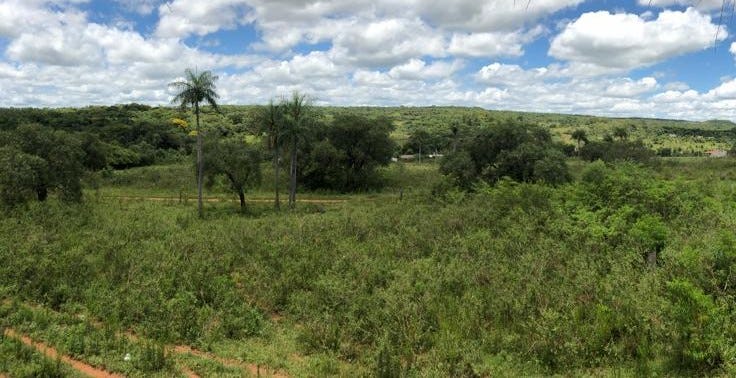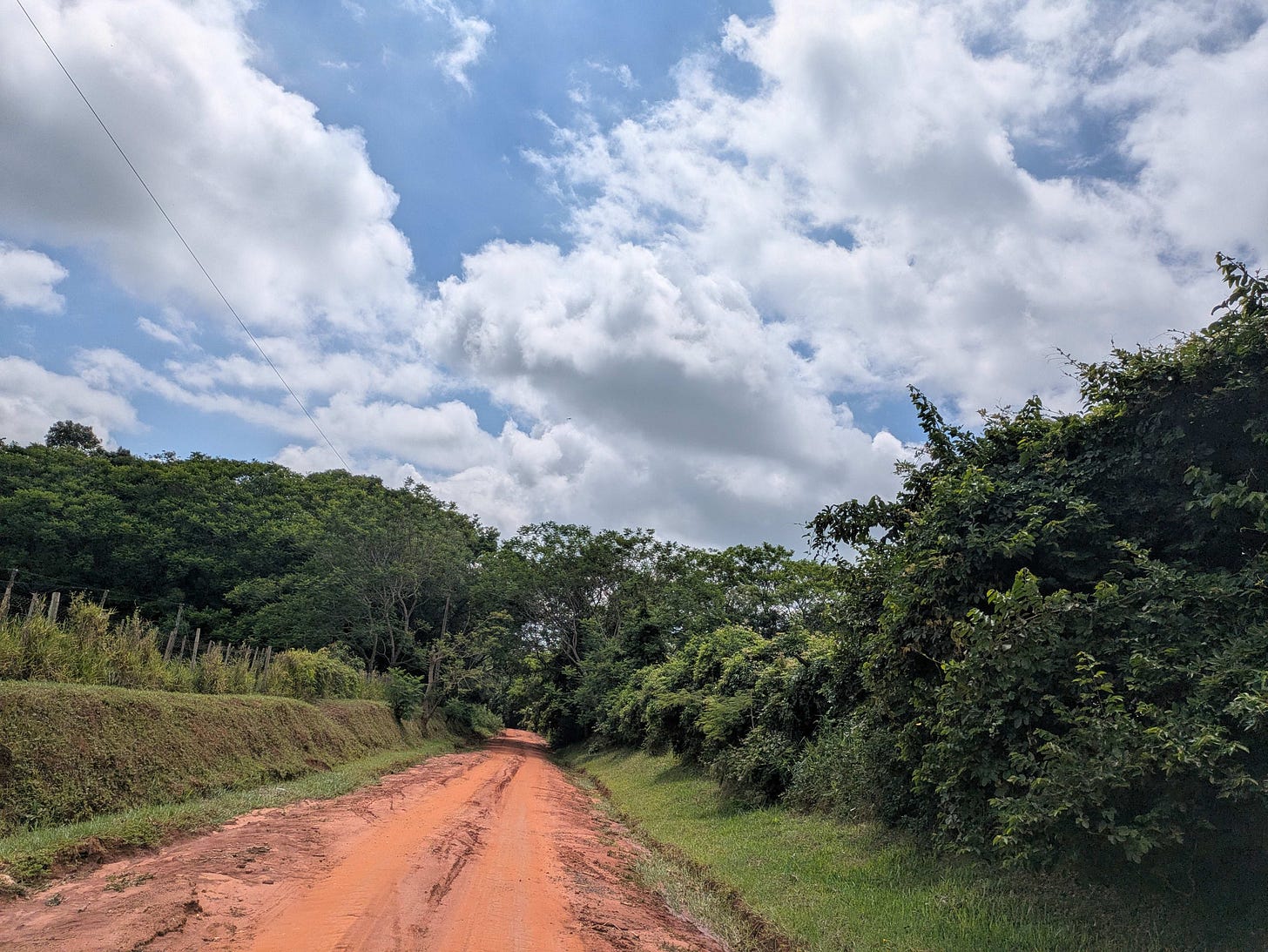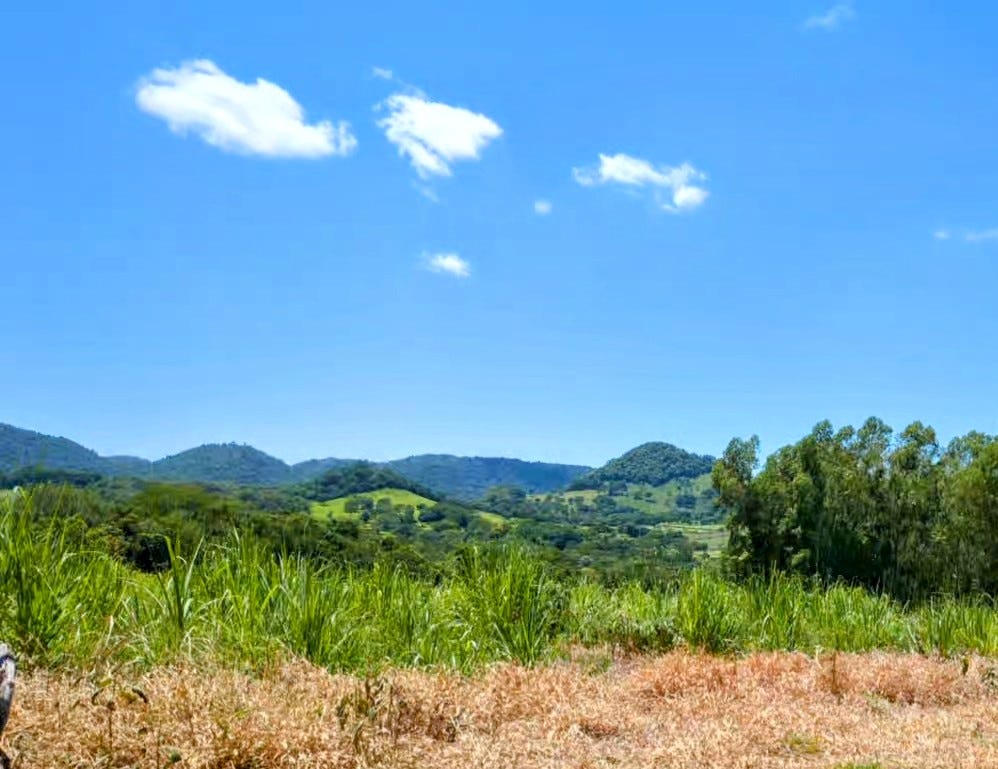What’s up, y’all!
Today’s photos include random views of the Paraguayan sky.
For the last couple of newsletters, I've made some jokes about gnob having to wear pants here. If you've talked to him, you may have heard him mention something about that. Even though he's a lifelong Oregon boy, he's not a big fan of the cold. Since we got to Louisiana in the summertime, and then we moved from a Southern US autumn to a Southern Hemisphere spring, other than the day we were on the plane flying here, gnob hasn't worn pants in months. He's been very happy about that.
As am I. No matter where I've wandered in the world over the last nearly 50 years (that feels weird to say - where does time go?), I've always traveled with Louisiana hot blood in my veins. I loved living in Oregon, but it was still way too cold for me there.
But I don't want to talk about the weather, I've already told you many times before that it's wonderful to live here, where it stays pretty warm.
No, I wanted to talk about gnob's resistance to wearing pants. Of course he doesn't want to wear pants when it's hot outside, which is why he got angry when the courthouse wouldn't let him in while wearing shorts. His opinion is that people who dress up do it because they think they're better than everyone else, and that no one should look down on anyone else - especially people in government positions. Because after all, we pay their salaries, so if anything, they should show respect to us, not the other way around.
Naturally, we've gone round and round on this one, because I disagree with him. (by the way, I love that when we have disagreements, they're of a philosophical nature, and not because we're fighting over money or jealousy or stupid things like that.) I do get what he's saying, but I don't think it's a matter of respect between individuals, I think it's a matter of respect for the system.
I mean, don't we get dressed up for weddings and funerals? For going to church, or graduation? There's a reason they're called formal occasions. They're things we should take seriously. Though in the United States, when we think of formality these days, it's a lot more lax than it used to be, isn't it? People wear their pajamas to the grocery store. And you can walk into a courthouse wearing shorts. But not so many years ago, it wasn't that way. Things change.
Paraguay holds onto its traditions more strongly, and while younger generations are pushing for change, the respect for formality remains deeply ingrained. Change will come, though, the same way it happens everywhere else. I have no doubt that within my lifetime, there will be some relaxing of the formal wear, just as there was in the United States. But whether we like the tradition or not, this is the culture we chose to live in, and "their house, their rules," so to speak.
It's not just walking into a courthouse that's different, either. Going to someone's house is also different.
It is common courtesy here to ask permission before entering someone's home, or even a store, if it's a small one. If it's a large store, there's usually no one to ask, but it's still normal to say hello to the people inside as you enter. When entering a home, though, you say "Permiso," as in, "Do I have your permission to enter?" The normal response is "Adelante", which means, "Come on in!" Then you can enter.
If you go to someone's house, and their door is closed, so you're not sure if they're home, you don't enter their yard and knock on their door. And you're never sure if anyone is home because most people don't have cars, so you can't look for the car in the driveway to see if they're home. Hell, most people don't even have driveways.
So what do you do if you can't knock on their door?
You clap.
Loudly.
No one tells you this. It's one of those things you pick up by living here, since customs like these are so natural to locals that it doesn't occur to them that newcomers might not know. I figured it out when there was a man standing outside of my gate, clapping for five minutes to get my attention so he could make a delivery!
Another common courtesy when greeting an elder is to approach with your hands together in prayer, to ask for their blessing. I actually love this one.
But here's a greeting that confused for me a long time when I first got here. I've asked people from other Latin American countries, and they don't do this, so it's specific to Paraguay. But I bet they also do it in Uruguay and Argentina, because these three countries share a lot of things that aren't common in other regions. Like using Vos instead of Tu as the second person pronoun.
When people walk past each other, they don't say "Hola" or "Buenos días" - okay, well that's not quite true, they do sometimes. What's way more common is for them to say:
"Adiós!"
Yes, "Adiós", what we learned in school means "good-bye", they say here for "hello". It confused me a lot in the beginning, especially because they don't say "Adios" for good-bye, either, they say "chau chau!" (pronounced CHOW).
It's not only used when walking past each other, it's also when one of the people is walking, and the other one is seated, on a bench, or in front of their home.
Figure it out yet?
I've decided that it's like "aloha", which can also mean hello or goodbye. Anyway, because one or both of you is walking, then you're about to pass each other and not see each other anymore, so technically, good-bye is appropriate.
These days, "adios" is probably my most used word! Because unlike other places, where strangers don't talk to each other, here, everyone greets everyone, all the time. They don't call themselves "the country of friends" for no reason. They're very friendly people. Although one local did jokingly tell me that their real reason for staying calm and friendly is just common sense - it's too hot here to waste energy on being angry!
Yesterday, our neighbors stopped us as we were walking down the street so that they could share some of their homemade chipa guazu with us. Two days before that, a different neighbor handed me a piece of sopa paraguaya as I came out of my house.
These two dishes are like the yin and yang of corn here. Though both taste delicious warm, sopa paraguaya is made with cornmeal, and has a texture like cornbread. Well, not like cornbread, it is cornbread, lol. Chipa guazu has some of the same ingredients (usually cheese, butter, eggs, onion), but it's made with fresh corn, not cornmeal, and has more of a casserole texture, though you can also cut and eat a piece of it with your hand.
Someone asked me the other day which one I liked better, and I told them neither, that each has a time and place to be enjoyed. They all nodded sagely at this answer.
Speaking of food, my uncle commented the other day that he's starting to think that's why I moved here! Though the cuisine was not on my list of necessities when choosing a country, I'm certainly glad I moved somewhere with people who not only love to eat well, but also love to share it with others. For example, my friend Ana recently taught me how to make vori vori, which has been voted the most delicious soup in the entire world! (not kidding, look it up!)
Maybe my uncle is right - because I've somehow wandered from gnob's anti-pants stance back to talking about food again. I guess I'll wrap it up for this week and go eat something. While wearing pants, because it's getting chilly here. It might get down to 50 Fahrenheit tomorrow, brrrr!
Thanks for reading this week’s update! Feel free to use the button below to leave a comment or ask a question. We love to hear from you!
Have a great week!
Parting Thoughts
Did You Know?
You can like and comment on these stories by using the links below. We’d love to hear from you!
We’re not just on YouTube, we’re also on Instagram!
watch: our latest video on YouTube!










